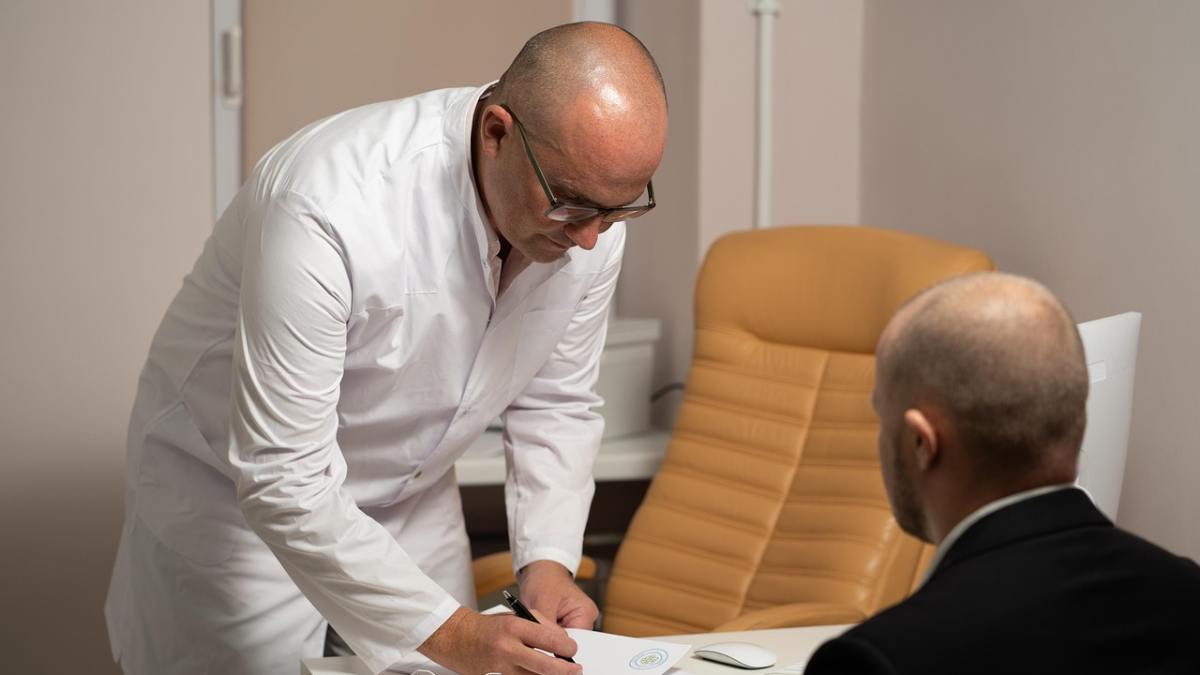We talk with Prof. Manfred Spitzer about the age at which children should start utilizing smartphones, how smartphones can mess up our lives, and whether changes in the law are needed.

Manfred Spitzer
German psychiatrist and neurobiologist (born 27 May 1958). He besides studied psychology and philosophy, holds a doctorate in medicine and philosophy, and is simply a visiting prof. at Harvard University. From 1990 to 1997, he was head of the University Psychiatric Clinic in Heidelberg, and in 1997 he took up the chair of psychiatry at the University of Ulm (as the youngest prof. of this subject in Germany). Since 1998, he has been the manager of the University Psychiatric Clinic in Ulm, and since 2004, he has headed the Centre for cognition Exchange in Neuroscience and Education (German: ZNL), which conducts investigation in the field of neurodidactics. He is the author of many technological publications and books popularising cognition in the field of neurobiology and neurodidactics, including Lernen (2002) and Vorsicht Bildschirm (2005).
Magda Dolińska-Rydzek, Rafał Górski: At what age should a kid be allowed to have a smartphone for the first time? And why at that age?
Manfred Spitzer: Smartphones are harmful to the wellness of children and young people, and can lead to blindness, strokes, heart attacks and dementia in later life, according to medical literature. The younger the kid is erstwhile they start utilizing a smartphone, the greater the damage. Smartphones besides harm learning processes and origin intellectual wellness problems specified as attention deficit disorder, anxiety disorders and depression. For these reasons, it would be sensible to keep smartphones out of the hands of children and adolescents, i.e. only let smartphones from the age of 16, and even then preferably with the proviso that parents should intervene in cases of excessive usage (more than 3 hours a day).
Is smartphone as addictive as cigarettes, alcohol and cocaine?
It depends on what we mean by “as addictive”. While addiction to commonly known intoxicants specified as cigarettes, alcohol and cocaine arises as a consequence of these substances’ effects on circumstantial centres in the brain, behavioural addictions are learned on the basis of repetitive behaviours. The process of their formation is so different. However, in both types of addiction, very akin patterns of activity are produced in the brain, and addiction to Facebook on a CT scan looks the same as addiction to cocaine.
So much with respect to the mechanism. From a purely clinical point of view, addiction has a circumstantial definition: it is impossible to break free from it, despite being aware of its harmfulness; aggression arises erstwhile 1 has to give it up; addiction becomes more crucial than contact with friends, siblings or parents, and the behaviours associated with it are no longer pleasurable (as they were at the beginning), but are aimed solely at avoiding withdrawal symptoms.
When we think about treating an alcoholic, we presume that during and after treatment, they should not consume any alcohol whatsoever. With children’s smartphone addiction, it is different. We accept that an addicted kid will be given a smartphone for, say, an hr a day. Why?
We inactive do not take smartphone addiction seriously.
At the civilian Affairs Institute, we are considering preparing a draft government on counteracting digital addiction, modelled on the law on counteracting drug addiction. The fresh law would address behavioural addictions and cover smartphones, social media, online games and digital gambling.
What do you think? Is this a good idea? What should be included in specified a government for it to make sense?
Such a government would be very sensible. As with another addictive substances that are legally consumed (alcohol, nicotine), it should set circumstantial age limits. For example, a ban on smartphones until the age of 14 and a ban on social media and computer games until the age of 16. After all, many countries already have a ban on gambling until the age of 18.
Currently, there is no top-down, government-imposed, nationwide ban on the usage of smartphones in schools in Poland. Schools are given free hand to decide for themselves whether to include any restrictions in their statutes. The civilian Affairs Institute advocates centralised government regulation alternatively than leaving the decision to individual institutions. Teachers come to us with questions about what to do erstwhile a parent threatens to sue the school if it introduces a ban on the usage of smartphones. Teachers tell us that a much better solution would be a centrally imposed ban, enacted by the Ministry of National Education.
If you were an advisor to the Polish Minister of Education, what would you recommend?
Introducing a general ban on the usage of smartphones in schools would be helpful. It would destruct the main argument utilized by pupils, which is that ‘everyone else has their smartphone with them too’. We are not rather there yet in Germany, but at least the first national state (Hesse) has banned smartphones in schools.
What impact do large business, specified as technology corporations (TikTok, Meta, Google), smartphone manufacturers (Apple, Samsung, Xiaomi) and telecom companies (Play, Orange, Plus, T-Mobile) have on children’s smartphone addiction?
We are talking about the largest lobby that has always existed on Earth. These companies do not care about the wellness and education of young people, they just want to make money. That is why we must say to our children: ‘You don’t want to sacrifice your attention and time, and thus your lives, for the profit of these companies, do you?’ possibly that will give them any food for thought.
What function do NGOs and experts funded by large business play in smartphone addiction? And what function do politicians play?
‘Experts’ who are financed by lobbyists are not experts, but alternatively paid opinion makers. Politicians, on the another hand, should take their responsibilities seriously and defend young people from negative influences.
The civilian Affairs Institute is postulating that companies profiting from children’s addiction to smartphones and social media should pay a peculiar taxation to fund treatment and intellectual care for children. What is your opinion on this?
Anything that increases the price of addictive substances and products may reduce their consumption. However, whether specified a measurement is adequate requires further research. First and foremost, we request to educate parents. erstwhile mothers and fathers are aware of how harmful excessive smartphone usage is to wellness in the long word – erstwhile again,we are talking about a importantly increased hazard of blindness, strokes, heart attacks and dementia – then they will act sensibly and defend their children from these devices. The most crucial thing, therefore, is to rise awareness and educate – that is what needs to be done!
Magda Dolińska-Rydzek, Rafał Górski















